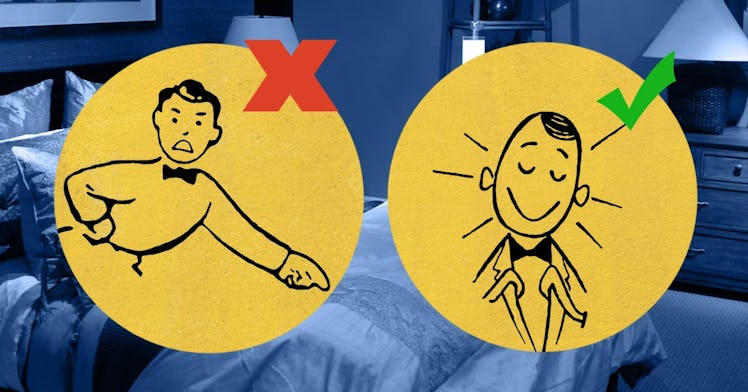How to Stop Being Such a Control Freak
Sometimes letting go of control means realizing you probably never had to to begin with.

Fatherhood requires control. Necessity dictates that we all organize our lives — and those of our families — so that we all don’t spin out of orbit. Routine is essential. So are rules. But it’s easy to go to the nth degree and never, ever relinquish control. Because lack of control can look like chaos. But, life being life, things have a tendency of going ass over elbows and must be nimble in how we handle the lack of control for the sake of both ourselves and our family.
If you identify as — or if someone in your life is — a control freak there are several ways to wean yourself off the behavior and learn to not worry about letting go of the reins.
What makes a person go from making to-do lists to organizing and categorizing every aspect of their lives? Experts say that controlling behavior is often rooted in fear.
“For control freaks, control means security, that they are okay, and their lives are under control,” says GinaMarie Guarino, a licensed mental health counselor. “That stimulates the need to constantly be in control. The idea of losing control implies that they will be harmed in some way, something will go wrong, or they will suffer consequences for not taking charge.”
In many people with control issues, there’s also a certain element of perfectionism them as well as a deep-rooted insecurity that stems from concern over people’s perceptions and their possible rejection.
“As humans, we all have a need to feel loved and as though we belong to a partner, a family, a circle of friends, etc,” says Erika Martinez, a Miami-based clinical psychologist. “Being a control freak or perfectionist is one means of ensuring that needs get met.”
Many of these behaviors are formed very young in life, sometimes as young as two or three. Mark Borg, a a community psychologist and psychoanalyst, says that they can often manifest around the time kids are being toilet trained. Seeing their parents wanting something from them, and the power that comes from noncompliance, can be alluring, says Borg.
But, toilet training aside, in any situation where a child feels powerful, especially in an environment where they are often powerless, can be a breeding ground for control freak actions.
“Wielding and withholding power is very much at the center of the behavior,” says Borg, “and the less control and safety the child felt in early life, the more extreme the need for a sense of control in later life will be.”
Self-assessment aside, how does one stop him or herself from their obsessive pursuit of dominance? Well, the first step is to realize that the idea of control is an illusion.
“While we all have influence over what happens in our own environment, we only can control ourselves, and how we react to changing circumstances,” says Guarino, adding that a person who is trying to be less controlling simply needs understand and accept this fact.
Of course, understanding what causes someone to consistently crave ascendancy is only the first part of the problem. Acceptance only goes so far and from there the control freak has to take steps to break the cycle.
This is easier said than done, but there are steps one can take. Martinez says that one helpful tip, learned at a workshop held by University of Houston research professor and bestselling author Brené Brown, comes by using a 1-in x 1 in square of paper. “You write down the names of the people whose opinions about you matter,” Martinez says. “In therapy, clients and I will frequently revisit the list as worries and fears come up. If the names aren’t the list, I teach the client to CTRL+ALT+DELETE the thoughts.”
Another strategy Martinez recommends is for control freaks to try and test their fears. “For example,” she says, “someone might be a control freak about how tidy their home is when visitors are expected. I would ask the client to purposely not clean up as well as they might have to test whether the visitors notice and/or comment. If they don’t, the client is allowed to point out/mention the untidiness and ask if it was noticed before.”
Ultimately, those with control issues need to build up a sense of safety between themselves and the world, says Borg. This usually has to be done one relationship at a time.
“It is even important to allow others to be human, to disappoint us, to see that we are now adults and we can survive some degree of being disappointed at other people’s humanness,” he says. “The control freak defenses were built innocently enough when we were small. We’re adults now, we can withstand things much better, if we’ll allow ourselves, than when we were young.”